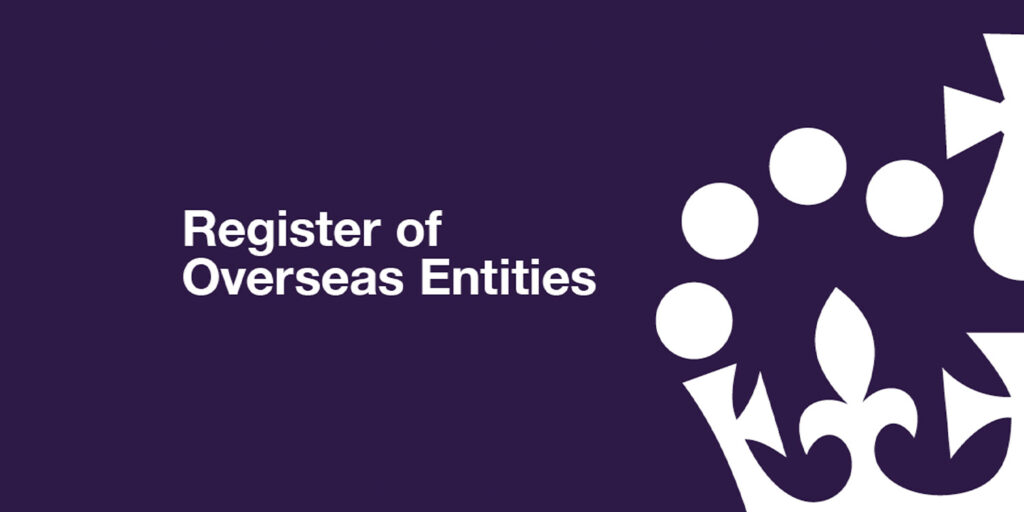Companies House has officially launched its new Register of Overseas Entities. The register went live on August 1, and it requires all overseas entities that own property or land in the UK to declare their managing officers or beneficial owners.
The UK Government unveiled plans to introduce its new Register of Overseas Entities as a way to combat money laundering and fraud here in the UK earlier this year — and now that the register has come into effect, foreign companies that fail to comply could face severe penalties if they buy, sell or lease that property here in the UK.
To ensure you’re fulfilling all of your new company obligations as of August 2022, we’ve created a quick guide outlining how the Register of Overseas Entities works and the information you must disclose.
What is the Register of Overseas Entities?
The Register of Overseas Entities came into force on August 1 as part of the UK Government’s Economic Crime (Transparency and Enforcement) Act 2022.
While Companies House had expressed a desire to introduce this register for some time prior to 2022, Russia’s invasion of Ukraine accelerated the register’s creation to ensure that assets held by sanctioned individuals could be controlled. More importantly, it prevents asset disposal.
From here on out, any overseas entity that wants to buy, sell or transfer property or land in the UK is required to register with Companies House and explain who their respective beneficial owners or managing officers are.
Crucially, this requirement is being applied retrospectively. That means any overseas entity that bought property or land on or after January 1999 in England and Wales or December 2014 in Scotland needs to submit information through the register.
This retrospective action doesn’t apply to property purchased in Northern Ireland prior to the register’s launch.
Overseas companies have until January 31, 2023 to comply.
After you register your overseas entity with Companies House, you’ll be given a unique Overseas Entity ID. You’ll then use that ID to give to the land registry whenever your organisation buys, sells, transfers, leases or charges UK property or land.
What is an overseas entity?
For the purposes of this new register, an overseas entity is defined as any legal entity (like a limited company) that has a legal personality and is governed by the law of a country or a territory outside of the UK.
It’s important to note that the Republic of Ireland qualifies as an overseas jurisdiction for the purposes of the Register of Overseas Entities.
What is a beneficial owner?
A beneficial owner is any person or entity that has a significant control or influence over an overseas entity.
A beneficial owner could be:
- A person
- A legal entity
- A government or public authority
- A trustee of a trust
- A member of a firm that isn’t a legal person under its governing law
These conditions are known as the ‘natures of control’. If you meet any one of those conditions, it means you are a beneficial owner.
What you need to do
If you’re an overseas entity that wants to buy, sell, or transfer land or property in the UK, you need to register with Companies House. Likewise, if you already own or lease property or land in the UK, you’ll need to contact Companies House and tell them who your organisation’s registerable beneficial owners or managing officers are.
You’ve got until January 31, 2023 to submit your information for the register on the GOV.UK website.
These rules apply to anyone who purchased or leased land after January 1, 1999 in England or Wales. In Scotland, the retrospective changes are active on any properties that have changed hands since December 8, 2014.
The retrospective changes don’t apply in Northern Ireland — and so foreign entities only need to submit information for the register if they buy or lease land after August 1, 2022.
When you sign up for the register, you’ll need to provide information about your overseas entity, registrable beneficial owners, and the UK-regulated agent that carried out any verification checks.
For a beneficial owner, you’ll need to include the full name, date of birth, nationality, correspondence address and home address. You’ll also need to submit the date they became a beneficial owner of the entity in question, and detail the nature of their control.
You must also disclose whether they’re on the UK sanctions list, and if any of the beneficial owners have their personal information protected at Companies House.
If you’re unable to identify all of your entity’s beneficial owners (or your company doesn’t have any), you’ll need to submit information about your entity’s managing officers instead.
So there you have it, everything you need to know about the Register of Overseas Entities
Want to learn more about reporting and filing obligations for companies operating in the UK?
Visit the 1st Formations central blog page for all the latest news on UK limited companies, Companies House requirements, startup taxes and more.
Please note that the information provided in this article is for general informational purposes only and does not constitute legal, tax, or professional advice. While our aim is that the content is accurate and up to date, it should not be relied upon as a substitute for tailored advice from qualified professionals. We strongly recommend that you seek independent legal and tax advice specific to your circumstances before acting on any information contained in this article. We accept no responsibility or liability for any loss or damage that may result from your reliance on the information provided in this article. Use of the information contained in this article is entirely at your own risk.






Join The Discussion